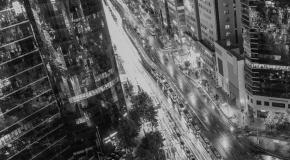- Asian and European cities remain at the top of rankings.
- Cities in the US perform poorly on infrastructure security but strongly on digital security.
- The bottom half of the index is dominated by cities in the Middle East, Africa, and developing Asia.
- 2017 version of the index includes six new indicators related to man-made threats, including terrorism.
The 2017 edition of The Safe Cities Index was launched by the Economist Intelligence Unit (EIU) today. The index, sponsored by NEC, ranks 60 cities worldwide across five continents (for a full list of cities see below). The 2017 edition is the second, after a first was published in 2015, andfeatures an updated and expanded definition of urban safety, with new indicators covering man-made threats to safety, including terrorism.
Tokyo, which tops the index again, performed strongest in digital security and made improvements in health security. It is joined in the top 10 overall by Asian and European cities, with the sole exception of Toronto in 4th place.
The US’ deteriorating infrastructure is reflected in its cities’ rankings, with only San Francisco making the top 20 and Dallas falling in the bottom half. All of the cities that made the top10 in infrastructure security are either in Europe or the Asia-Pacific.
Dhaka, Yangon, and Karachi, three cities added to the 2017 version of the index, are at the bottom and are joined by three other Asian cities in the bottom 10: Manila, Ho Chi Minh, and Jakarta. Although wealth is not the only factor in determining safety, it is among the most important, as evidenced by the stark divide between the cities in high-income countries at the top of the rankings and the cities in low to middle income countries at the bottom.
Chris Clague, the editor of the report, said:
“Events since 2015, from the terrorist attacks in Europe to the recent devastation wrought by severe weather in the southern US and the Caribbean, have reinforced the importance policymakers should place on urban safety. Technology is a vital tool for any government in combatting these and other security issues, but it itself creates new vulnerabilities, chiefly in the form of cyber attacks. The 2017 version of the index is designed to help leaders find a balance.”
See the full index results and download the report at safecities.economist.com

Press enquiries:
Tokyo: Chris Clague, managing editor, Asia
+ 81 3 5223 2662
Singapore: Stefano Scuratti, principal, EIU Consulting
+65 6428 2670
Hong Kong: Alice Tong, head of marketing, content solutions, Asia-Pacific
+852 2585 3835
Notes to editors
About the Safe Cities Index 2017
The Safe Cities Index 2017 is an updated and expanded version of The Safe Cities Index 2015. It measures the relative safety of cities using four main categories: digital security, health security, infrastructure security, and personal security.
The key differences between the 2017 and the 2015 versions of the index are the addition of five new indicators and the increase in the number of cities from 50 to 60. For more on the index methodology, please see the methodology appendix at the end of the report.
The additional cities were selected based on factors such as regional representation and availability of data, similarly to what was done for the 2015 version of the index.
North America: Toronto, San Francisco, Los Angeles, Chicago, New York, Washington DC, and Dallas.
Latin America: Buenos Aires, Santiago, Rio de Janeiro, São Paulo, Mexico City, Lima, Bogota, Quito, and Caracas.
Europe: Amsterdam, Stockholm, Frankfurt, Madrid, Barcelona, Brussels, London, Paris, Milan, Rome, Athens, Istanbul, Moscow, Zurich
Middle East and Africa: Abu Dhabi, Doha, Kuwait City, Jeddah, Riyadh, Casablanca, Johannesburg, Cairo, Tehran
Asia-Pacific: Tokyo, Singapore, Osaka, Melbourne, Sydney, Hong Kong, Seoul, Wellington, Taipei, Kuala Lumpur, Beijing, Shanghai, Delhi, Mumbai, Bangkok, Manila, Ho Chi Minh City, Jakarta, Dhaka, Yangon, Karachi
About The Economist Intelligence Unit
The Economist Intelligence Unit is the world leader in global business intelligence. It is the business-to-business arm of The Economist Group, which publishes The Economist newspaper. The Economist Intelligence Unit helps executives make better decisions by providing timely, reliable and impartial analysis on worldwide market trends and business strategies. More information can be found at www.eiu.com or www.twitter.com/theeiu.
About NEC
NEC Corporation specialises in the integration of IT and network technologies for businesses and people around the world. By providing a combination of products and solutions that cross utilize the company’s experience and global resources, NEC’s advanced technologies meet the complex and ever-changing needs of its customers. NEC brings more than 100 years of expertise in technological innovation to empower people, businesses and society. For more information, visit NEC at http://www.nec.com



